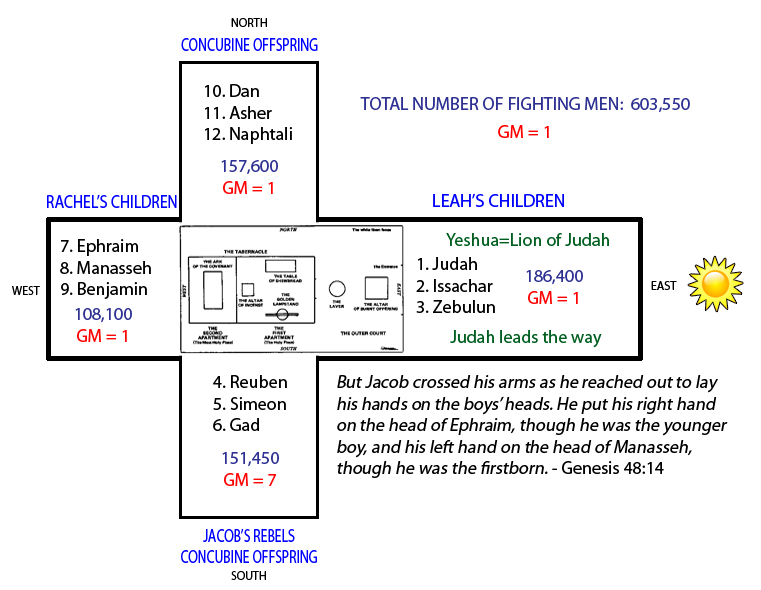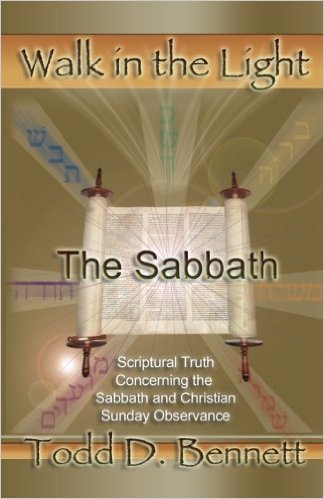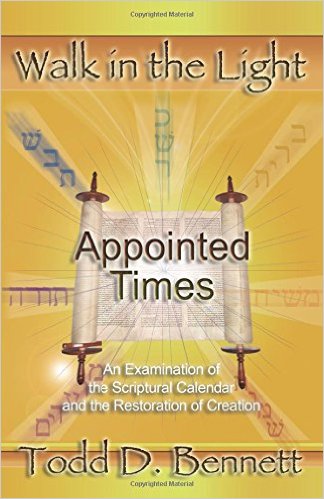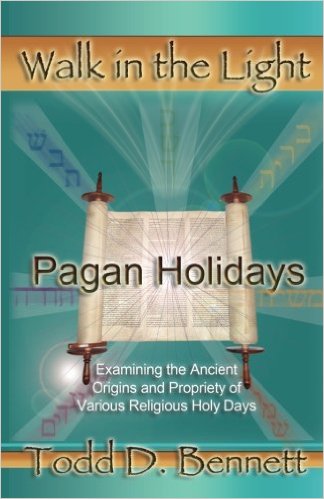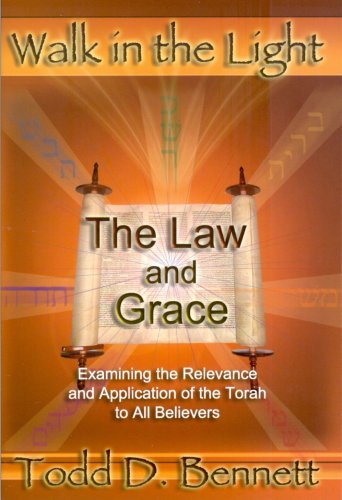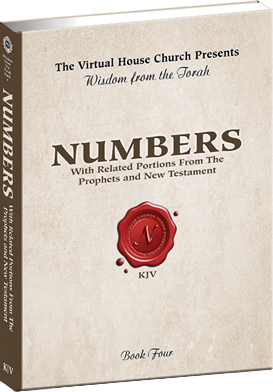
Numbers Bible Study:
Matot (Tribes)
The Scriptures for this week’s study:
TORAH:
Numbers 30-32
Jeremiah 1-2:28;
Judges 11:29-40
NEW TESTAMENT:
Matthew 5:33-37; 23:1-39
QUICK SUMMARY OF THIS TORAH PORTION:
ARCHIVE OF OUR STUDIES:
2013 Broadcast:
2014 Broadcast:
2017 Broadcast:
2020 Broadcast:
2021 Broadcast:
STUDIES DONE BY OTHERS:
Ardelle’s “Your Living Waters”
Torah Commentary:
- http://yourlivingwaters.com/Numbers/Mattot-Commentary-2008.pdf
- http://yourlivingwaters.com/Numbers/Mattot-Massei-Commentary-2009.pdf
Workbook Discussion Questions:
How does this week’s Torah Portion Relate to the Haftarah and Brit Chadasha Portions?
What did you find most interesting about this week’s reading?
What is the general theme of this reading and how does it apply to our lives today?
Notes From This Study:
Isaiah 46:10 (KJV)
10 Declaring the end from the beginning, and from ancient times the things that are not yet done, saying, My counsel shall stand, and I will do all my pleasure:
1 Corinthians 10:11 (NRSV)
11 These things happened to them to serve as an example, and they were written down to instruct us, on whom the ends of the ages have come.
-
-
- who you are (Genesis)
- where you should be going (Exodus)
- to be Set Apart and Holy (Leviticus)
- to Trust YHWH as He guides you (Numbers)
- to OBEY HIS INSTRUCTIONS so you may Live (Deuteronomy)
-
This will not be too hard for you, because Messiah laid down His Life to make it possible for you to “Get in Covenant” with His Father! He even sent His Set Apart Spirit to give you strength to finish the Race! If you think of yourself as a “Gentile Christian” you may be suffering from Spiritual Identity Theft. The only Cure is to start at the very BEGINNING.
The Tabernacle, the People and the Cross:
1 Corinthians 2:16 (NRSV)
For who has known the mind of the Lord, that he will instruct Him? But we have the mind of Christ.
If we as Believers have the “mind of Christ,” may I ask when did Christ ever think we should do away with His Father’s Commandments? When did Yeshua ever have a mind for or advocate in favor of lawLESSness? When did Yeshua ever walk in disobedience to His Father?
1 John 2 (NLT)
2 My dear children, I am writing this to you so that you will not sin. But if anyone does sin, we have an advocate who pleads our case before the Father. He is Jesus Christ, the one who is truly righteous. 2 He himself is the sacrifice that atones for our sins—and not only our sins but the sins of all the world.
John later defines sin as transgression of the Torah (law). So, first we must understand that it is possible to NOT sin. To achieve this, we need to obey Torah.
3 And we can be sure that we know him if we obey his commandments. 4 If someone claims, “I know God,” but doesn’t obey God’s commandments, that person is a liar and is not living in the truth.
John says we are known to be of Him if we keep/obey His Commandments. To drive the point even further, he says that if anyone claims to be a Believer, but doesn’t obey the Commandments, he is a liar and there is no truth in him. That’s pretty serious! It makes you really wonder how many truly are Believers doesn’t it? If being a Believer means putting on the “mind of Christ” and obeying the Commandments, there aren’t a whole lot of “real” Believers out there. I get attacked on a fairly regular basis by people claiming to be Believers… but who do not at all think the way Christ thought, which was ALWAYS to obey His Father and also included a HEBREW mindset, as that was His (human) ancestry, being of the line of Judah.
5 But those who obey God’s word truly show how completely they love him. That is how we know we are living in him. 6 Those who say they live in God should live their lives as Jesus did.
This is MASSIVELY HUGE! People say they “love God.” The problem (for them) is, to “love God” is to keep His Commandments:
1 John 5:2 We know we love God’s children if we love God and obey his commandments. 3 Loving God means keeping his commandments, and his commandments are not burdensome.
A New Commandment
7 Dear friends, I am not writing a new commandment for you; rather it is an old one you have had from the very beginning. This old commandment—to love one another—is the same message you heard before. [see Lev. 19:18] 8 Yet it is also new. Jesus lived the truth of this commandment, and you also are living it. For the darkness is disappearing, and the true light is already shining.
9 If anyone claims, “I am living in the light,” but hates a Christian brother or sister, that person is still living in darkness. 10 Anyone who loves another brother or sister is living in the light and does not cause others to stumble. 11 But anyone who hates another brother or sister is still living and walking in darkness. Such a person does not know the way to go, having been blinded by the darkness.
12 I am writing to you who are God’s children
because your sins have been forgiven through Jesus.
1 John 2:12 (KJV)
12 I write unto you, little children, because your sins are forgiven you for his name’s sake.
God forgave us for HIS sake…
Isaiah 43:25 (NLT)
25 “I—yes, I alone—will blot out your sins for my own sake and will never think of them again.
Forgiveness is for the one who is offended – not for the offender, because the fruit/by-product/result of forgiveness is PEACE!
13 I am writing to you who are mature in the faith
because you know Christ, who existed from the beginning.I am writing to you who are young in the faith because you have won your battle with the evil one.
James 4:7 (KJV)
7 Submit yourselves therefore to God. Resist the devil, and he will flee from you.
14 I have written to you who are God’s children because you know the Father.I have written to you who are mature in the faith because you know Christ, who existed from the beginning. I have written to you who are young in the faith because you are strong. God’s word lives in your hearts,
and you have won your battle with the evil one.
Do Not Love This World
15 Do not love this world nor the things it offers you, for when you love the world, you do not have the love of the Father in you. 16 For the world offers only a craving for physical pleasure, a craving for everything we see, and pride in our achievements and possessions. These are not from the Father, but are from this world. 17 And this world is fading away, along with everything that people crave. But anyone who does what pleases God will live forever.
Warning about Antichrists
18 Dear children, the last hour is here. You have heard that the Antichrist is coming, and already many such antichrists have appeared. From this we know that the last hour has come. 19 These people left our churches, but they never really belonged with us; otherwise they would have stayed with us. When they left, it proved that they did not belong with us.
20 But you are not like that, for the Holy One has given you his Spirit, and all of you know the truth. 21 So I am writing to you not because you don’t know the truth but because you know the difference between truth and lies. 22 And who is a liar? Anyone who says that Jesus is not the Christ. Anyone who denies the Father and the Son is an antichrist. 23 Anyone who denies the Son doesn’t have the Father, either. But anyone who acknowledges the Son has the Father also.
24 So you must remain faithful to what you have been taught from the beginning. If you do, you will remain in fellowship with the Son and with the Father. 25 And in this fellowship we enjoy the eternal life he promised us.
What happened to the Holy Spirit in John’s discussion?
The Trinity – Three Persons?
First, I’d like you to take notice of the Nicene Creed (which many adhere to in support of their doctrine) as it was originally written…
The Nicene Creed
The Synod at Nice set forth this Creed.
The Ecthesis of the Synod at Nice.
We believe in one God, the Father Almighty, maker of all things visible and invisible; and in one Lord Jesus Christ, the Son of God, the only-begotten of his Father, of the substance of the Father, God of God, Light of Light, very God of very God, begotten (γεννηθέντα), not made, being of one substance (ὁμοούσιον, consubstantialem) with the Father. By whom all things were made, both which be in heaven and in earth. Who for us men and for our salvation came down [from heaven] and was incarnate and was made man. He suffered and the third day he rose again, and ascended into heaven. And he shall come again to judge both the quick and the dead. And [we believe] in the Holy Ghost. And whosoever shall say that there was a time when the Son of God was not (ἤν ποτε ὅτε οὐκ ἦν), or that before he was begotten he was not, or that he was made of things that were not, or that he is of a different substance or essence [from the Father] or that he is a creature, or subject to change or conversion — all that so say, the Catholic and Apostolic Church anathematizes them.
You’ll note that even they did not state that the Holy Ghost/Spirit was another person in the Godhead. They merely stated that they believe in it. As do I! I will never deny the existence of the Holy Spirit! It is very real and I welcome its work in my life on a regular basis. However, the idea I am challenging is whether or not it should be considered a “He” as in another person (i.e. Third Person of the Trinity), who works alongside the Second Person of Yeshua/Jesus, and the First Person of the Father YHVH.
|
|||
The first thing we must acknowledge is that this passage is actually a call-back to a TORAH-based principle of needing 2 to 3 witnesses to establish truth (Deuteronomy 17:6; Deuteronomy 19:15; Matthew 18:16; 2 Corinthians 13:1).
Second (and I encourage you to do your own research on this), many commentators point out the following:
Pulpit Commentary
…the remainder of this verse and the first clause of verse 8 are spurious. Words which are not contained in a single Greek uncial manuscript, nor in a single Greek cursive earlier than the fourteenth century (the two which contain the passage being evidently translated from the Vulgate), nor are quoted by a single Greek Father during the whole of the Trinitarian controversy, nor are found in any authority until late in the fifth century, cannot be genuine.
Gill’s Exposition of the Entire Bible
For there are three that bear record in heaven,…. That is, that Jesus is the Son of God. The genuineness of this text has been called in question by some, because it is wanting in the Syriac version, as it also is in the Arabic and Ethiopic versions; and because the old Latin interpreter has it not; and it is not to be found in many Greek manuscripts; nor cited by many of the ancient fathers, even by such who wrote against the Arians, when it might have been of great service to them: to all which it may be replied, that as to the Syriac version, which is the most ancient, and of the greatest consequence, it is but a version, and a defective one.
Jamieson-Fausset-Brown Bible Commentary
Two or three witnesses were required by law to constitute adequate testimony. The only Greek manuscripts in any form which support the words, “in heaven, the Father, the Word, and the Holy Ghost, and these three are one; and there are three that bear witness in earth,” are the Montfortianus of Dublin, copied evidently from the modern Latin Vulgate; the Ravianus, copied from the Complutensian Polyglot; a manuscript at Naples, with the words added in the Margin by a recent hand; Ottobonianus, 298, of the fifteenth century, the Greek of which is a mere translation of the accompanying Latin. All the old versions omit the words. The oldest manuscripts of the Vulgate omit them: the earliest Vulgate manuscript which has them being Wizanburgensis, 99, of the eighth century.
For me, it’s really a non-issue. It’s semantics we’re dealing with. Clearly, the Holy Spirit is a functional part of God and His plan. So, whether or not I choose to think of it as a “person” is irrelevant. It exists. It works in our lives. I believe in the Holy Spirit (just as those who wrote the Nicene Creed did). It only becomes an issue when the Trinity Police want to press the issue, by demanding you must believe the Holy Spirit is a PERSON.
Consider this:
1) Why did John (when considering what it means to be “antichrist”), leave the Holy Spirit out of his discussion in 1 John 2:22,23?
a) The Father
b) The Son who was begotten of Him
c) The Holy Spirit that proceeds from the Father/Son
3) I believe the Godhead consists of the Father and the Son, who both share the Holy Spirit as One. At one time I believed there were “three persons” to the Godhead. I no longer believe that. I believe the Holy Spirit originates and emanates from the Father through the Son to us, but ultimately it is part of the Father.
(John 14:26 KJV)
And he that keepeth his commandments dwelleth in him, and he in him. And hereby we know that he abideth in us, by the Spirit which he hath given us. (1 John 3:24 KJV)
For these reasons and more, I believe it is more appropriate to believe that the Holy Spirit is indeed very real and plays an active part in our salvation and walk with YHVH, but that it is both of and from the Father and not a separate, individual “person” apart from Him. Thus, even 1 John 5:7 is in agreement. The Father, Son and Holy Spirit are indeed ONE (hence, I believe in the Trinity). However, there is no reason whatsoever to believe that the Holy Spirit is a “person.” It is the breath/power of the Father.
KEY NOTE: I’m not saying anyone else needs to be believe this way though. I am just expressing my own struggles that I have with the standard view of the Trinity. Pray and as the Holy Spirit to lead you into the truth about this.
26 I am writing these things to warn you about those who want to lead you astray. 27 But you have received the Holy Spirit, and he lives within you, so you don’t need anyone to teach you what is true. For the Spirit teaches you everything you need to know, and what he teaches is true—it is not a lie. So just as he has taught you, remain in fellowship with Christ.
Living as Children of God
28 And now, dear children, remain in fellowship with Christ so that when he returns, you will be full of courage and not shrink back from him in shame.
29 Since we know that Christ is righteous, we also know that all who do what is right are God’s children.
1 John 3 (NLT)
3 See how very much our Father loves us, for he calls us his children, and that is what we are! But the people who belong to this world don’t recognize that we are God’s children because they don’t know him. 2 Dear friends, we are already God’s children, but he has not yet shown us what we will be like when Christ appears. But we do know that we will be like him, for we will see him as he really is. 3 And all who have this eager expectation will keep themselves pure, just as he is pure.
4 Everyone who sins is breaking God’s law, for all sin is contrary to the law of God.
Note that sin is described as transgression of Torah:
1 John 3 (KJV)
4 Whosoever committeth sin transgresseth also the law: for sin is the transgression of the law.
5 And you know that Jesus came to take away our sins, and there is no sin in him. 6 Anyone who continues to live in him will not sin. But anyone who keeps on sinning does not know him or understand who he is.
Again, John clearly indicates that it is possible to not sin. To not sin is to obey YHVH’s instructions (Torah).
7 Dear children, don’t let anyone deceive you about this: When people do what is right, it shows that they are righteous, even as Christ is righteous. 8 But when people keep on sinning, it shows that they belong to the devil, who has been sinning since the beginning. But the Son of God came to destroy the works of the devil.9 Those who have been born into God’s family do not make a practice of sinning, because God’s life is in them. So they can’t keep on sinning, because they are children of God. 10 So now we can tell who are children of God and who are children of the devil. Anyone who does not live righteously and does not love other believers does not belong to God.
Love One Another
11 This is the message you have heard from the beginning: We should love one another. 12 We must not be like Cain, who belonged to the evil one and killed his brother. And why did he kill him? Because Cain had been doing what was evil, and his brother had been doing what was righteous. 13 So don’t be surprised, dear brothers and sisters,[c] if the world hates you.
14 If we love our Christian brothers and sisters, it proves that we have passed from death to life. But a person who has no love is still dead. 15 Anyone who hates another brother or sister is really a murderer at heart. And you know that murderers don’t have eternal life within them.
16 We know what real love is because Jesus gave up his life for us. So we also ought to give up our lives for our brothers and sisters. 17 If someone has enough money to live well and sees a brother or sister in need but shows no compassion—how can God’s love be in that person?
18 Dear children, let’s not merely say that we love each other; let us show the truth by our actions. 19 Our actions will show that we belong to the truth, so we will be confident when we stand before God. 20 Even if we feel guilty, God is greater than our feelings, and he knows everything.
21 Dear friends, if we don’t feel guilty, we can come to God with bold confidence. 22 And we will receive from him whatever we ask because we obey him and do the things that please him.
23 And this is his commandment: We must believe in the name of his Son, Jesus Christ, and love one another, just as he commanded us. 24 Those who obey God’s commandments remain in fellowship with him, and he with them. And we know he lives in us because the Spirit he gave us lives in us.
MUST READ BOOKS:
The Tribulation Protection Plan:
Exodus 34:21-24 (NLT)
21 “You have six days each week for your ordinary work, but on the seventh day you must stop working, even during the seasons of plowing and harvest.
22 “You must celebrate the Festival of Harvest with the first crop of the wheat harvest, and celebrate the Festival of the Final Harvest at the end of the harvest season. 23 Three times each year every man in Israel must appear before the Sovereign, the Lord, the God of Israel. 24 I will drive out the other nations ahead of you and expand your territory, so no one will covet and conquer your land while you appear before the Lord your God three times each year.
Leviticus 26:3-13 (NRSV)
3 If you follow my statutes and keep my commandments and observe them faithfully, 4 I will give you your rains in their season, and the land shall yield its produce, and the trees of the field shall yield their fruit.5 Your threshing shall overtake the vintage, and the vintage shall overtake the sowing; you shall eat your bread to the full, and live securely in your land. 6 And I will grant peace in the land, and you shall lie down, and no one shall make you afraid; I will remove dangerous animals from the land, and no sword shall go through your land. 7 You shall give chase to your enemies, and they shall fall before you by the sword. 8 Five of you shall give chase to a hundred, and a hundred of you shall give chase to ten thousand; your enemies shall fall before you by the sword. 9 I will look with favor upon you and make you fruitful and multiply you; and I will maintain my covenant with you. 10 You shall eat old grain long stored, and you shall have to clear out the old to make way for the new. 11 I will place my dwelling in your midst, and I shall not abhor you. 12 And I will walk among you, and will be your God, and you shall be my people. 13 I am the Lord your God who brought you out of the land of Egypt, to be their slaves no more; I have broken the bars of your yoke and made you walk erect.
Also listen to John William Galt (the voice of the movies) reading Psalm 91:

